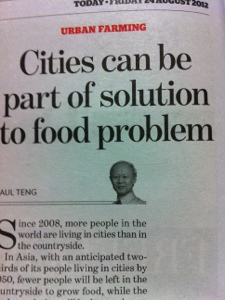While the government has been exhorting us the lumpen proletariat to improve our productivity, it has nonetheless in the last 15-20 years been preaching the need to import foreign labour in order to maintain our economic growth. As a result, productivity growth has been anemic while Singaporeans wonder about the nature of our collective identity and have to cope with stresses to our social and physical infrastructure.
Many of us feel that after this period of so-called growth, we are now worse off than before. This brings to mind a passage from written by Bill Gross, the PIMCO bond king:
Almost a century ago, Keynes alerted the economic community to a “new disease,” what he called “technological unemployment” where jobs couldn’t be replaced as fast as they were being destroyed by automation. Recently, Erik Brynjolfsson and Andrew McAfee at MIT have affirmed that workers are losing the race against the machine. Accountants, machinists, medical technicians, even software writers that write the software for “machines” are being displaced without upscaled replacement jobs. Retrain, rehire into higher paying and value‐added jobs? That may be the political myth of the modern era. There aren’t enough of those jobs. A structurally higher unemployment rate of 7% or more is the feared “whisper” number in Fed circles. Technology may be leading to slower, not faster economic growth despite its productive benefits.
We can see that a properly developed economy should have a structural reduction in the need for manpower. On the other hand, given our recent experience, the government is telling us that Singapore needs to keep importing people to sustain our economy. What these 2 things tell me is that we are probably pursuing an incorrect strategy for economic development. Instead of moving up the technological and productivity scale, we are relying on a low-tech, labour-intensive service sector to continue to power our economic growth.
What this means is that we are moving in the wrong direction as far as economic development is concerned, i.e. towards a more 3rd world structure. Is it then any surprise that we see an increase in income and wealth inequality, stagnant wages and asset bubbles?
